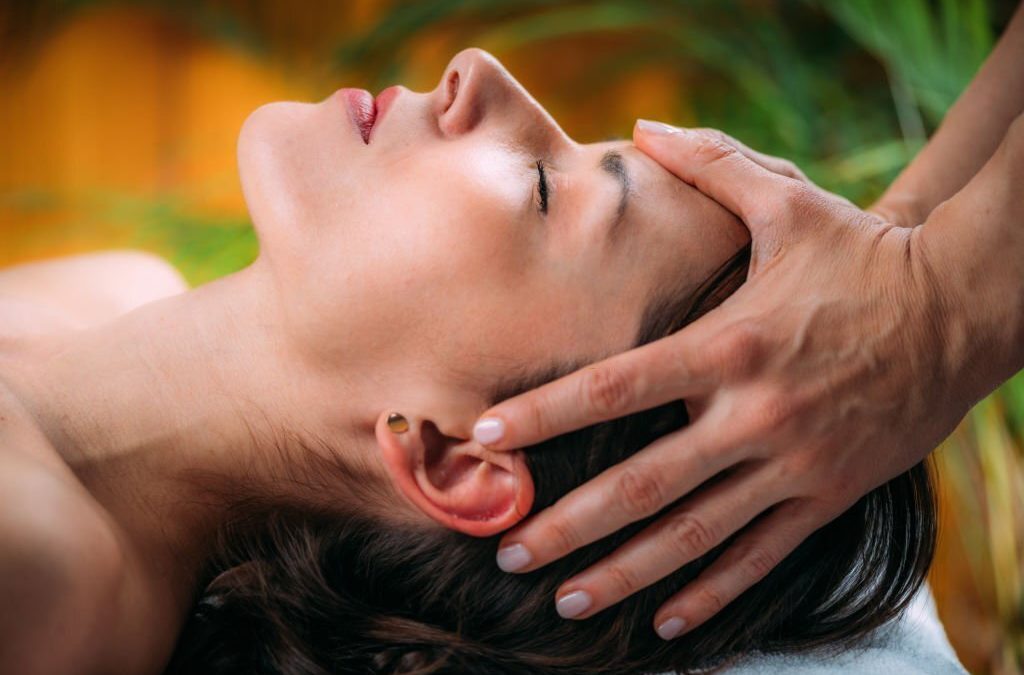Craniosacral therapy (CST) is a gentle hands-on approach that examines membranes and fluid circulation in and around the central nervous system with a light touch. By removing pain and enhancing health and immunity, relieving tension in the central nervous system fosters a sense of well-being.

Conditions Craniosacral Therapy Help
- Chronic pain. Chronic pain is a discomfort that persists for more than six months. Even after the injury or sickness that caused it has healed or gone away, this type of pain might persist. Pain signals can last for weeks, months, or even years in the neurological system.
- Fibromyalgia. An illness that causes widespread pain, sleep disturbances, exhaustion, and often emotional and mental suffering. Fibromyalgia patients may be more sensitive to pain than non-fibromyalgia patients. Abnormal pain perception processing is the term for this.
- Migraine headache. A migraine is a headache that usually affects one side of the head and causes extreme throbbing pain or a pulsing sensation. It’s commonly accompanied by nausea, vomiting, and excessive light and sound sensitivity. Migraine attacks can last anywhere from hours to days, and the pain might be severe enough to prevent you from going about your usual activities.
- Complex regional pain syndrome. Complex regional pain syndrome (CRPS) is a persistent pain condition that mainly affects one arm or leg. CRPS usually occurs as a result of an injury, surgery, a stroke, or a heart attack. The agony is out of proportion to the initial injury’s severity. CRPS is a rare condition, and the cause is unknown. When treatment is started early, it is most successful. Improvement and even remission are conceivable in such circumstances.
- Fascial adhesions. Scar tissue adhesions (also known as fibrous adhesions or simply adhesions) are made up of fibrous fascia collagen fibers (see accompanying figure). Collagen fibers are similar to those found in tendons, ligaments, and other fibrous fascial tissues.
- Multiple sclerosis. Multiple sclerosis (MS) is a disease that affects the brain and spinal cord, resulting in a variety of symptoms such as vision, arm or leg movement, feeling, and balance. It’s a chronic illness that can sometimes lead to major disability, however it can also be mild.
- Neuralgia.Neuralgia is pain that occurs along a neural pathway. In most cases, neuralgia is a symptom of an injury or a problem rather than an ailment in and of itself. The reason of the pain is frequently unknown. The elderly are the most vulnerable, although anyone of any age can be affected.
- Neurodegenerative diseases. Nerve cells in the brain and peripheral nervous system lose function over time and eventually die in neurodegenerative illnesses. Although therapies can help with some of the physical and mental symptoms of neurodegenerative disorders, there is presently no method to limit disease progression and no cures.
- Stroke. When the blood supply to a part of the brain is blocked or decreased, brain tissue is deprived of oxygen and nutrients, resulting in an ischemic stroke. Within minutes, brain cells begin to die. A stroke is a medical emergency that requires immediate attention. Brain injury and other consequences can be avoided if intervention is taken early.
- Temporo-mandibular joint syndrome. The temporomandibular (tem-puh-roe-man-DIB-u-lur) joint (TMJ) connects your jawbone to your skull and serves as a sliding hinge. On either side of your jaw, there is a joint. TMJ problems, which are a kind of TMD, can cause pain in the jaw joint and the muscles that govern jaw movement. It’s often difficult to pinpoint the exact source of TMJ dysfunction. Genetics, arthritis, or a jaw injury could all be contributing to your discomfort. Although many people routinely clench or grind their teeth and never develop TMJ disorders, some patients with jaw pain also tend to clench or grind their teeth (bruxism).
- Post-concussion syndrome. When concussion symptoms remain longer than the normal healing period following the initial injury, this is known as persistent post-concussive symptoms, or post-concussion syndrome. Weeks to months are typical healing times. Headaches, dizziness, and concentration and memory issues are all possible symptoms.
- Speech impairment. When your child can’t speak or can’t speak in a way that others can understand, they have a speech impairment, often known as a speech disorder. A speech impairment can sometimes be an indicator of physical or developmental abnormalities. If left untreated, a speech impediment can make learning to read and write difficult for children. Children with speech impairments may find it difficult to socialize. Some speech difficulties, such as tongue tie or cleft palate, can be corrected surgically. Speech therapy, on the other hand, usually aids in the treatment of speech impediments.
- Epilepsy. Epilepsy is a neurological illness in which brain activity becomes abnormal, resulting in seizures or episodes of unusual behavior, feelings, and occasionally loss of awareness. Epilepsy can strike anyone at any time. Males and females of various races, ethnic backgrounds, and ages are affected by epilepsy.
Our Technique and Procedure
When you come for your appointment, the practitioner will inquire about your symptoms as well as any pre-existing ailments.
Wear comfortable clothes to your session because you will normally remain fully dressed during the treatment.
Your session will take approximately one hour, and you will most likely begin by reclining on your back on the massage table. The practitioner may start at your head, feet, or somewhere in the center of your body.
Book An Appointment Today
Our experienced qualified practitioner at Centre Servette de Medecine Intégrative, Alternative et Complémentaire will advise you based on your skin type, condition, and the nature of the treatments you are receiving to ensure that your needs and budget are met by offering an honest and realistic consultation outcome.
Request an appointment at Centre Servette de Medecine Intégrative, Alternative et Complémentaire today. When you come in for your initial consultation, we will assess your skin and create a custom treatment plan for you. To get started, give us a call at +41 78 218 77 32. Or book an appointment online here.

